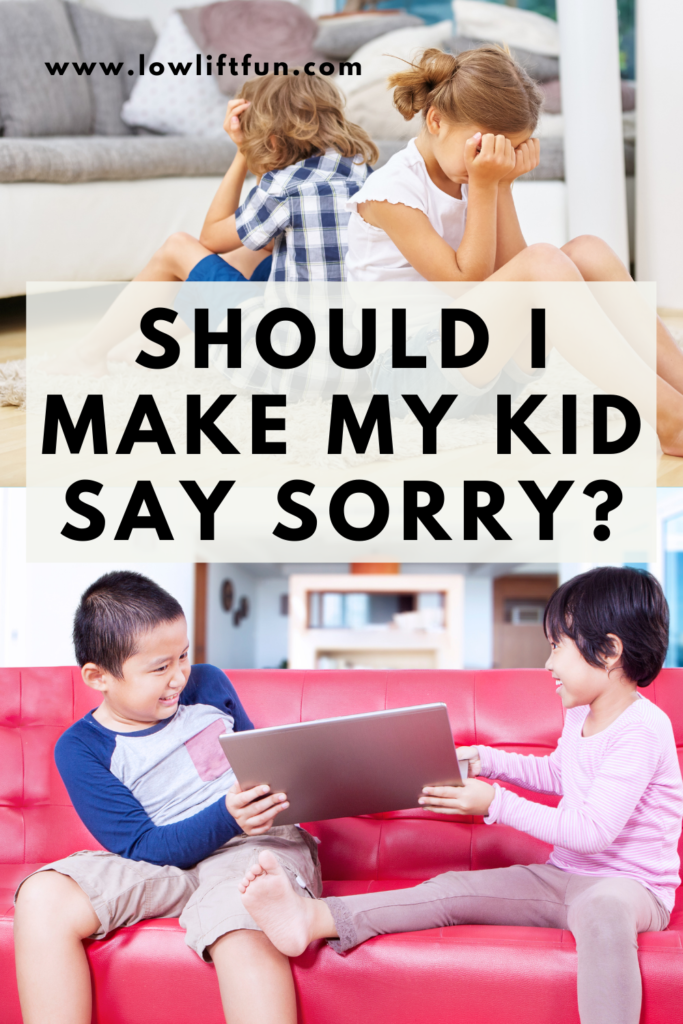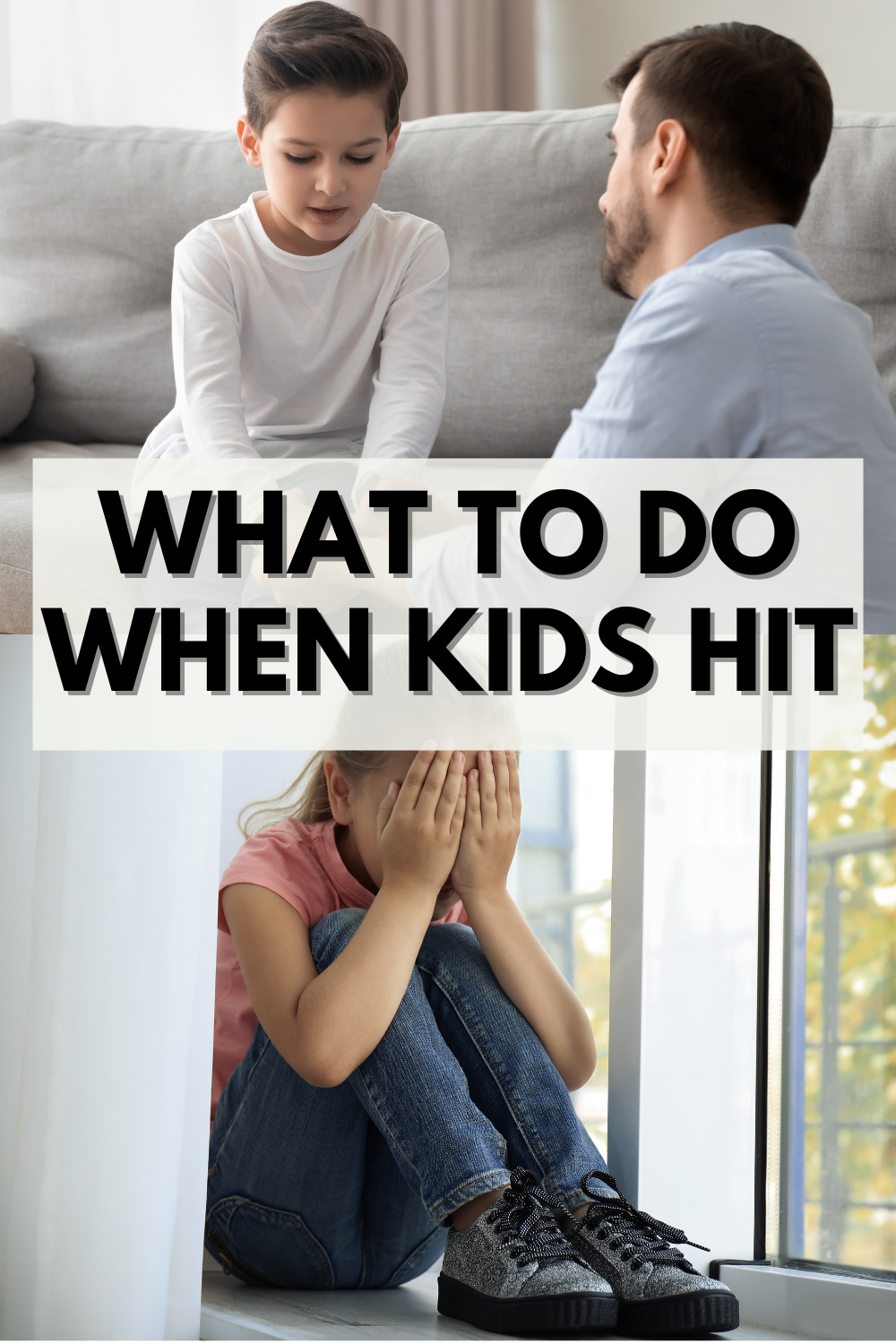This is what to do when your child hits.
Because we’ve all been there.
Your child hit somebody. Maybe they hit you, or maybe they hit someone else. They might be angry with a sibling, trying to protect a toy they want to keep, wanting out attention, overly excited, taking play too far, or any other number of emotions.
This post covers exactly what to do when your child hits and how to hold your boundary in a clear, confident way!
Important Reminder about Positive Parenting!
Remember positive parenting is not permissive parenting. We can set limits and hold boundaries in ways that are respectful and help our children learn how to handle their emotions and have their needs met in a healthier way.
All feelings are ok, all behaviors are not. We can hold space for all feelings AND set boundaries around behavior. It’s our kids’ job to test the limits, and it’s our job to confidently and respectfully hold our boundary.
What to Do When Your Child Hits:
1. Gently block the hit or step back if you can.
2. Say, “It’s ok to feel ____. I can’t let you hit (or ___)”
3. Find a calm space to go to calm down and regroup together if needed.
4. If you’re juggling multiple kids (hi, it’s me) get everyone in a safe spot, then you can tackle 1:1 convos.
Get to the root – identify the WHY:
Try to identify WHY your child is hitting. What are they trying to communicate? What need are they trying to have met?
- Here are some common reasons your child may be hitting:
- trying to solve a problem (get someone to leave them alone, keep a toy, etc.)
- emotions feel like too much to handle
- trying to get a parent to give them attention
- dysregulated, body is out of control, needs are unmet (hungry, tired, overwhelmed)
Teach What to Do Instead (Replacement Behavior):
Now teach a replacement behavior. It’s not enough to teach kids what NOT to do, teach them what to do instead. If they’re hitting, because someone is bothering them, they need to learn how to ask for space. Punishing them for hitting would do nothing to teach them how to handle the situation safely next time.
Here are several examples of replacement behaviors to teach.
- Based on WHY your child is hitting, you can then teach to that skill gap and teach a replacement behavior.
- trying to solve a problem (teach them to say, “I’m using this. I will tell you when I’m done.” It’s ok to want your turn with a toy – it’s not ok to hit.)
- emotions feel like too much to handle (teach them to say, “mom I want to hit and I need help to stop.” It’s ok to need help. Go get help from a grown up if you feel like you want to hit.)
- trying to get parent to give attention (teach them to say, “I need TLC.” It’s ok to ask for love and attention. You don’t have to try to show your grown up you are hurting inside – you can always tell us.)
Practice the replacement behaviors in low stress, happy times. Act out the scenario and practice together what to say.
What to do when your child hits: Teach Kids to Ask for Help!
If hitting is an ongoing problem, my number one tip is to teach the child, “you can always tell me if you feel like you’re going to hit – I can help.” This makes such a difference. You’re giving them the tools to seek support when they need it.
They are learning to be in tune with their emotions and get help before they hurt someone.
- Remember this:
- developmentally it’s normal and healthy for kids to test limits and need help learning how to regulate their emotions.
- they’re not bad, and you’re not a bad parent! Wonderful people have tough moments (that goes for kids and grown ups!) – we’re there to help them.
- If your child needs extra supports, that’s ok, too – Occupational Therapy can be tremendously helpful for children who have challenges with self regulation. All kids have different needs. You’re not doing anything “wrong” if your child needs extra support or accommodations.
Thank you for reading, and I hope you feel more confident in what to do when your child hits!
Remember to sign up for the Low Lift Fun newsletter to get easy kids’ activities and parenting tips delivered straight to your inbox!
If you’re deep in the weeds with hitting, you may also wonder if you should make your kid say sorry. This post if for you!!

